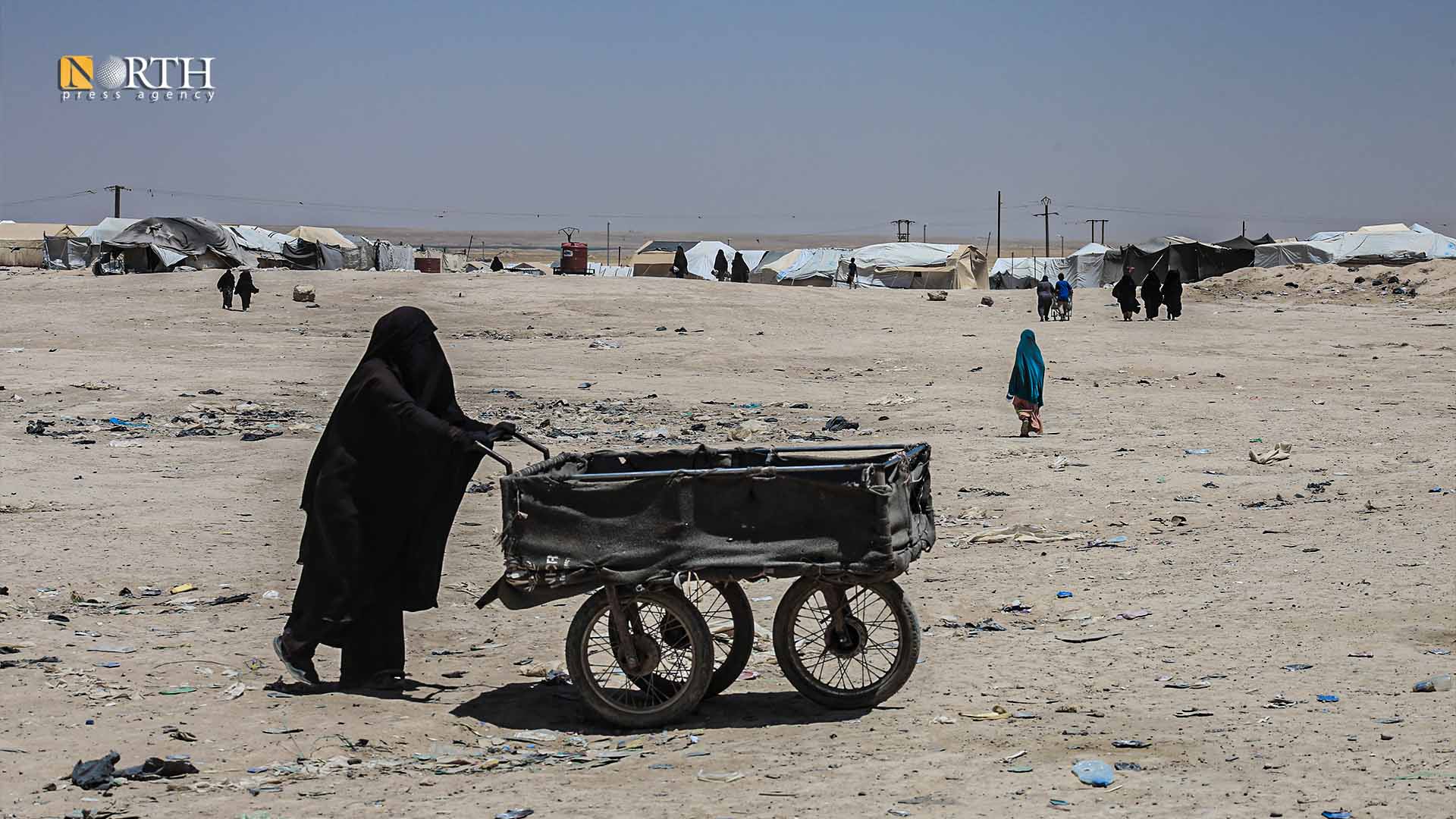Camps in Syria’s northeast hold UN, UNHCR accountable for incidents in Hawl
RAQQA, Syria (North Press) – On Wednesday, Sheikhmous Ahmed, co-chair of Refugees and IDP Affairs in northeast Syria, held the United Nations High Commissioner for Refugees (UNHCR) and organizations affiliated with it responsible for the incidents that happened in the area, especially in Hawl Camp.
On Saturday, the Hawl Camp, which houses tens of thousands of Syrian IDPs, Iraqi refugees, and families of the Islamic State (ISIS), witnessed a fire in a room within the fourth sector in the camp.
“Months ago, we warned the organizations operating inside the camp about the fires that might happen in the camp, whether intentionally or unintentionally, but we had no response,” Ahmed said in an exclusive statement to North Press.
In October, the Autonomous Administration of North and East Syria (AANES) started sending Syrian families that wanted to leave Hawl Camp back to their areas according to an initiative by the Syrian Democratic Council, in conformity with the calls of sheiks and tribal figures.
“The fire that spread through the camp was due to the camp’s residents’ and operating organizations’ negligence,” Ahmed added.
AANES called on the international community to pressure countries that have residents in Hawl Camp to repatriate them, “however, those countries revoked the nationality of their residents rather than repatriating them,” according to Ahmed.
The concerned countries did not respond to the AANES’ calls, including Iraq, according to Ahmed.
Iraqi refugees make up the majority of the camp’s population at around 30,606 Iraqis, according to the camp administration’s statistics.
Some countries revoked the nationality of their residents in Syria’s Hawl and Roj camps, that have housed citizens of different nationalities.
The camp was found for Iraqi refugees in 1991 during the Second Gulf War.
It was reopened later due to the influx of Iraqi refugees to Syria following the US intervention in Iraq, and it was among three camps on the Syrian-Iraqi border.
In 2016, AANES reopened the camp for those who fled battles against ISIS.

